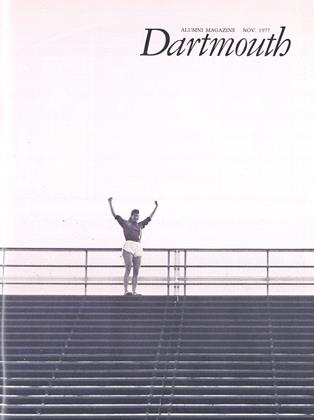Stratis Myrivilis' Life in the Tomb belongs to that select group of World War I novels which can still bring home to a contemporary reader not only the brutality and horror of trench warfare, but also the mental and emotional bewilderment of the combatants. Although it has been the most consistently popular work of serious fiction in Greece since its first publication in 1924 and has been translated into nearly a dozen other languages, it has not until now been available in English.
The novel takes the form of a series of letters written, but not sent, by a sensitive young intellectual, Anthony Kostoulas, to his fiancee. Motivated by patriotism, revolutionary enthusiasm, and - perhaps most importantly - by a very Greek sense of pride, Kostoulas volunteers to serve as an enlisted man in the forces of the anti-monarchical provisional government of Prime Minister Venizelos which, in 1917-1918, along with the French fought Serbian and Bulgarian armies to a standstill on the Macedonian front.
Through the letters we follow Kostoulas from his home on the island of Lesvos to Salonika and into the trenches. A long interlude in a rest camp behind lines provides a break in the action before the final battle. But the novel is less a narrative of events than a series of vignettes in which the hero comes to grips with the realities of trench warfare - the paralyzing fatigue, the permeating damp, the boredom of waiting, the comic incompetence of superiors, the suffering of the wounded and the hideousness of death - while trying to preserve a life of the mind and some semblance of past idealism.
The ultimate indignity of war for Kostoulas is not so much the annihilation of life as it is the entombment of life, the cutting off of the living from the existence they might have lived. outside of our dugout," the hero once reflects, the days and nights are passing over the earth in succession like a row of alternate white and violet birds - an endless row of cranes which fly off toward the horizon and vanish. They are the days and nights of my life. They exist beyond my stony carapace, passing away and carrying their allurement with them while I remain sprawled in the darkness within - I and my twenty-two years - a dirty cripple with an aching body all laced in cobwebs." Unlike Christ's entombment - the title comes from a Greek Good Friday hymn - the hero's seems to carry no hope of resurrection.
Myrivilis, who died in 1969 after a long and prolific literary career, is generally regarded in Greece as having been the most powerful prose stylist of his generation. In a language of extraordinary richness and vigor, he juxtaposes arresting realism, idyllic evocation and lyric meditation. He envelops the battle-scarred landscape and the weary soldiers of his story in an aura of poetry. All of which poses almost insuperable problems for the translator.
Professor Bien, who has previously given us excellent translations of a number of Kazantzakis' works, has risen to the challenge very well. While the diction of his translation is, on the whole, more bookish than the original Greek, it does convey something of Myrivilis' luxuriant variety of style. Bien's greatest virtue is accuracy as concerns a text filled with obscure dialect, neologisms, and linguistic puzzles of all sorts. One must object nonetheless to a not infrequent use of British slang ( tuck shop for "canteen," "get on tick" for "buy on credit," and the like) in a translation which is otherwise into American English. Despite its occasional shortcomings, Bien's translation should do much to make this classic of Modern Greek literature known in the English speaking world.
LIFE IN THE TOMBBy Stratis MyrivilisProfessor Peter Bien, 'trans.University Press of New England1977, 325 pp. $13.50
Professor Picken teaches Romance Languagesat Queens College of the City University of NewYork. He lived for a time in Greece and maintains a lively interest in Modern Greekliterature.
 View Full Issue
View Full Issue
More From This Issue
-
 Feature
FeatureFie on the Flush Toilet
November | December 1977 By Harold H. Leich -
 Feature
FeatureSee How They Run
November | December 1977 By Dan Nelson -
 Feature
FeatureThe Campaign for Dartmouth
November | December 1977 -
 Article
ArticleThe DCMB Double-entendre March
November | December 1977 By Anne Bagamery -
 Article
ArticleDick's House Is Her House
November | December 1977 By S.G. -
 Article
ArticleTheir Fathers' Sons
November | December 1977
Books
-
 Books
BooksALUMNI PUBLICATIONS
November 1920 -
 Books
BooksTHE ELECTRIC-LAMP INDUSTRY
December 1949 By H. L. Duncombe Jr. -
 Books
BooksSIDEWHEELER SAGA
July 1953 By HERBERT F. WEST '22 -
 Books
BooksINTERVIEWING COSTS IN SURVEY RESEARCH.
FEBRUARY 1965 By JOHN ADLER '49 -
 Books
BooksStreamside Delights
MAY 1983 By Kenneth E. Shewmaker -
 Books
BooksPLANTER MANAGEMENT AND CAPITALISM IN ANTE-BELLUM GEORGIA.
July 1954 By W. RANDALL WATERMAN

